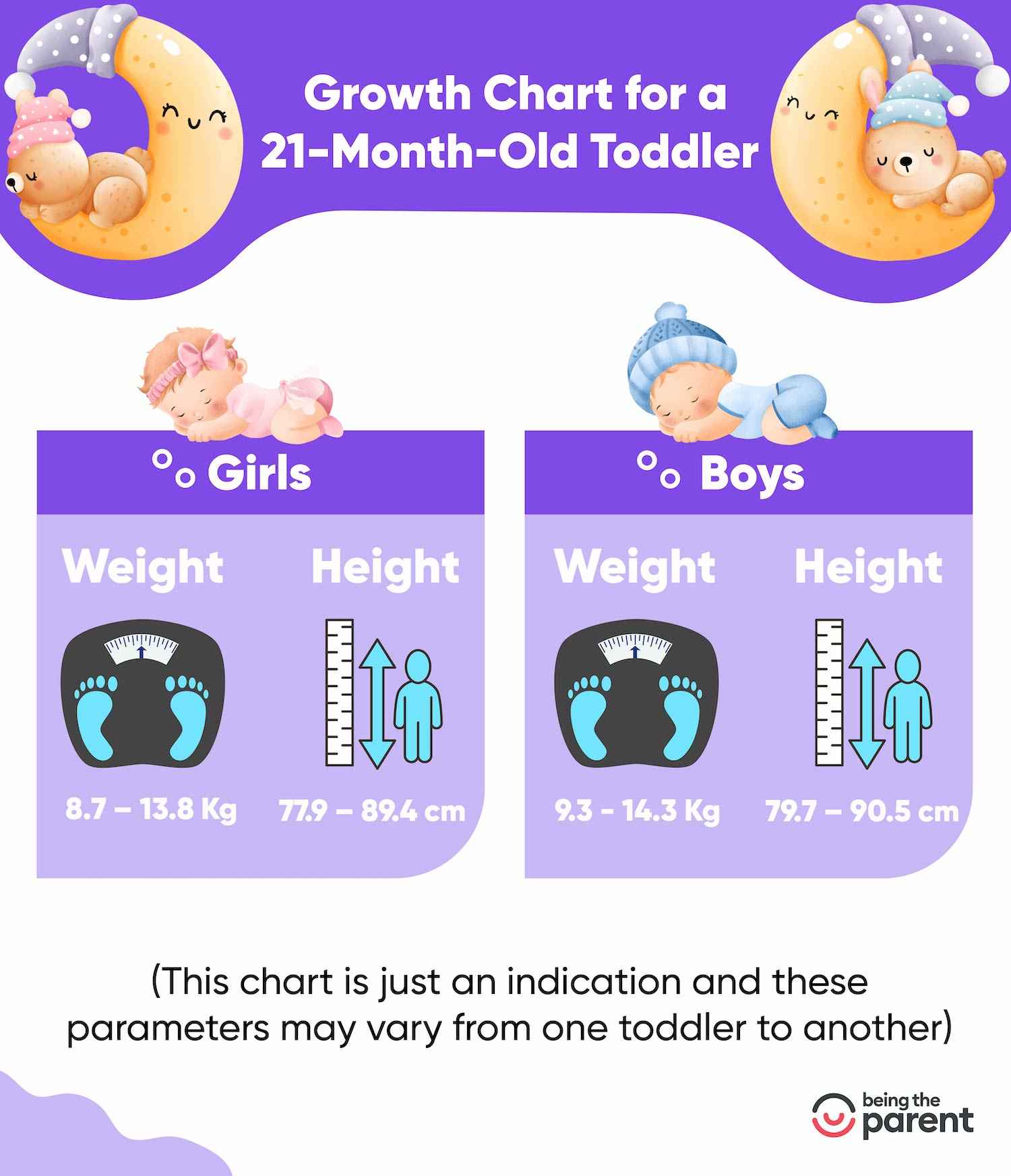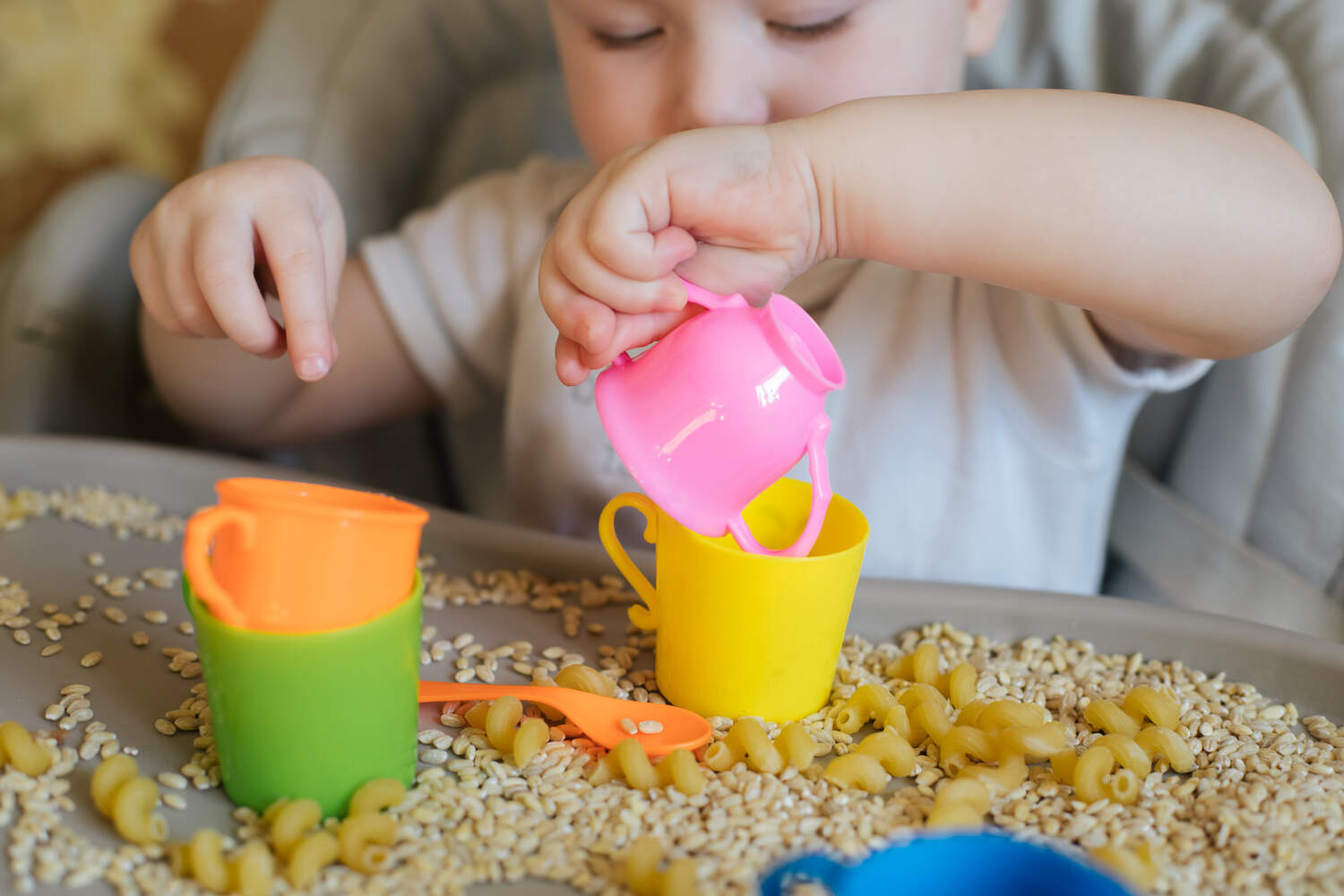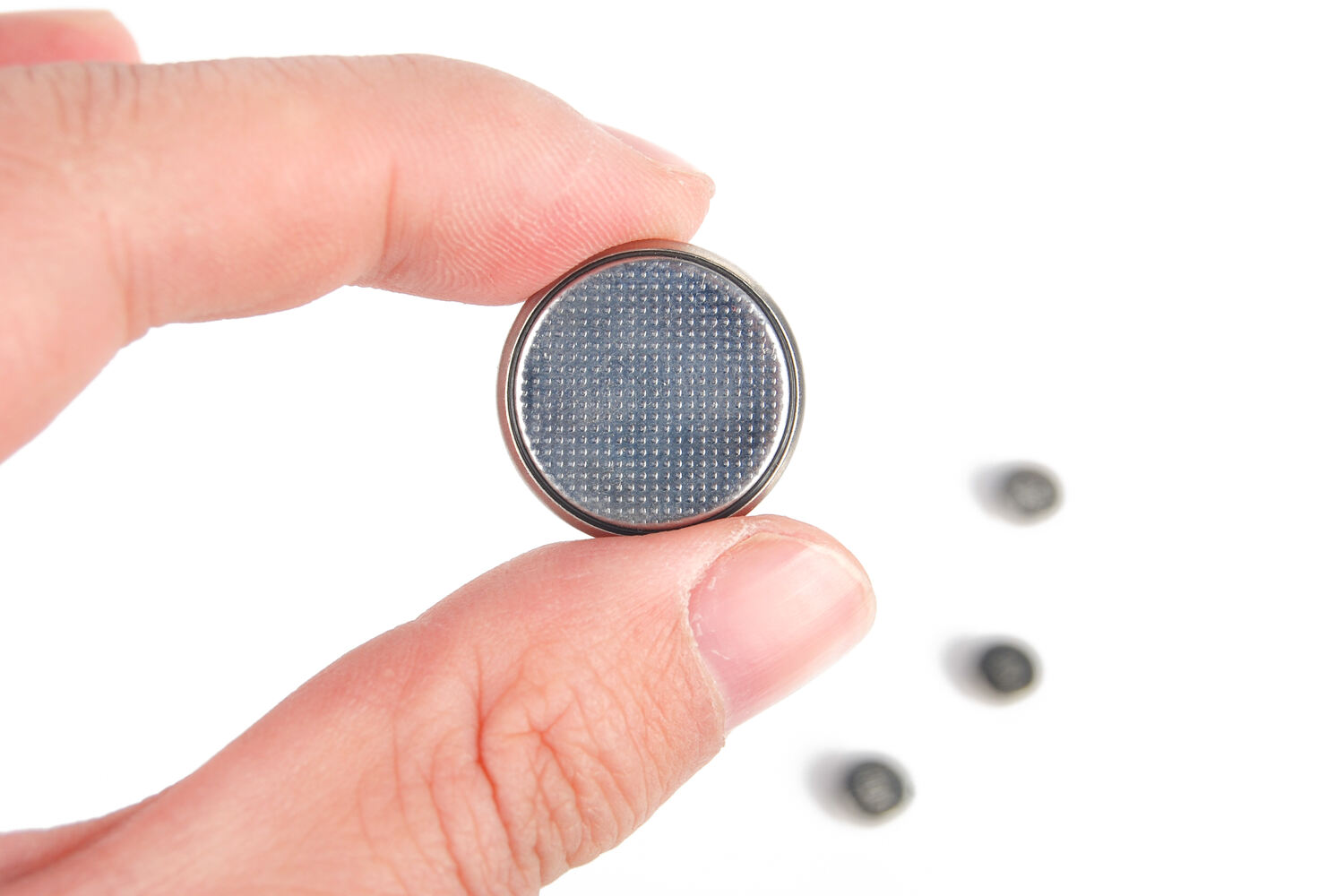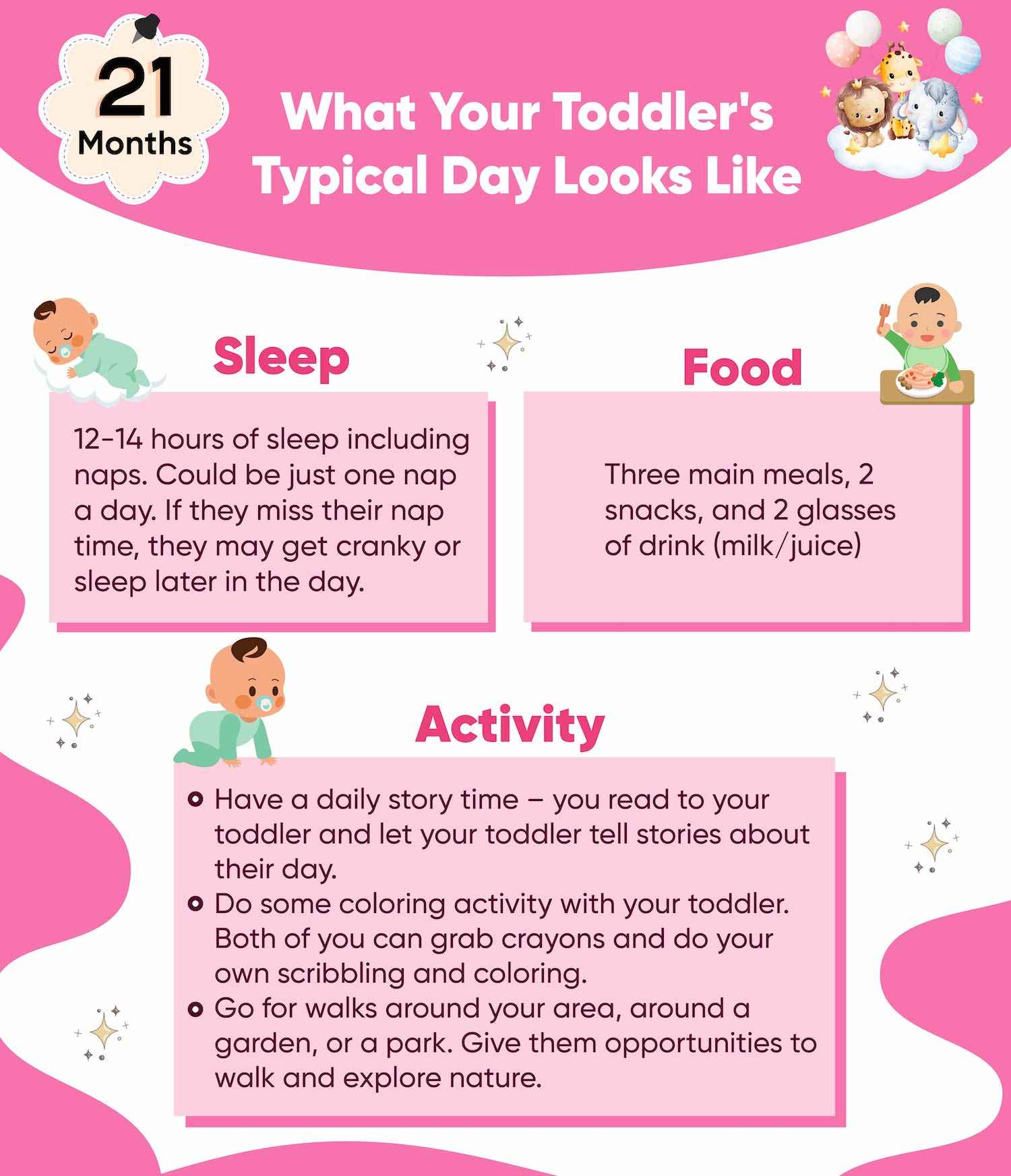
Your 21-month-old bundle of energy may seem to be doing a lot in the last few weeks. As they get bigger and stronger, their skills are all developing constantly. If you look closely, you will notice an improvement in almost all their activities. They are achieving their toddler milestones one after the other.
What can a 21-month-old do? Is your toddler on the right pace to achieve their toddler milestones or are they lagging and need some help? Different toddlers reach their toddler milestones at different times. There is no one fixed timeline for toddler milestones as these are all just part of their overall development. Read on to know what various toddler milestones you can expect your little one to attain this month.
In This Article
- Developmental Milestones For 21-Month-Old Toddlers
- Growth Chart For a 21-Month-Old Toddler
- Tips to Boost Your 21-Month-Old’s Development
- Health And Care of Your Toddler
- What Your Toddler’s Typical Day Looks Like?
- Some Useful Tips For Your Toddler
- FAQ’s
Developmental Milestones For 21-Month-Old Toddlers

Here are some developmental toddler milestones your 21-month-old can achieve this month-
Preference
- Your toddler is old enough to choose and like certain items and toys
- They will prefer certain toys over others
- You may find them constantly playing more with one toy or even taking it along wherever they go
More Observing
- Your toddler will observe and learn more by watching
- They will actively explore anything and everything around them, trying to understand it in their own way
Onlooker Play
- Your toddler might prefer to watch other kids play rather than join them
- They are observing and learning everything, so they might prefer to just watch instead of participate
- Some toddlers may try to imitate what they see other kids do in the playground or in playgroups
Gross Motor Skills
- Most toddlers at this age can walk, run, and squat with ease. Some can even use the stairs comfortably
- They can get up without help after a fall and will not hesitate to go down on all floors to explore something on the ground
- They can hold and throw a ball underhand
Communication
- Your toddler can understand and follow simple two-step commands like – “Take that ball on the floor and give it to me”, “Wash your hands and wipe it on the towel”
- They can remember, recollect, and act on the instructions you give them
- Most toddlers can now use more than 50 words
- Some can say words in more than one language if you speak to them in different languages
Dangerous Exploration
- Toddlers are very curious at this age and do not understand how dangerous certain activities can be
- They may try to put things into their nostrils, ears, or mouth. they may even try to extract items from a place and put them in their nose or ears (food, batteries)
Growth Chart For a 21-Month-Old Toddler
An average 21-month-old height and weight will be as follows-

Tips to Boost Your 21-Month-Old’s Development
Here are some tips for parents to aid their 21-month-old’s development in attaining their toddler milestones-
1. Toys Are Not Gender Specific

Toys though are made for “boys” and “girls”, are not gender specific. Every kid can play with any toy and every toy. Do not restrict your toddler to play with toys that are made gender specific by society. Give them the freedom to discover what they like (1).
2. Sensory Toys

Sensory toys are not just for the babies, toddlers will benefit from them too. Give them edible flour, grains, pulses, etc. to touch, feel, and understand. You don’t have to worry even if they try tasting it. Satisfying their senses can keep a toddler occupied for a while.
3. Free Play
Let your toddler play the way they want as long as it doesn’t hurt them. Being overly cautious and stopping them from climbing or running too fast can instill a sense of fear in them and affect their development. An hour of free play time a day can do wonders for their physical and cognitive development. It will also improve their confidence levels (2).
4. Don’t Threaten

It is easy to threaten an innocent toddler to get things done, like going to bed on time, eating their meals, not doing certain activities, etc. This can cause a lot of damage in the long run as you are consciously bringing in a sense of fear. Also, once they grow and realize this was all a lie, they may discontinue those habits/activities. Help your toddler understand and do things and not do them out of fear.
5. Avoid Strong Reactions
Your toddler is seeking attention and will love big reactions from you. They are still too small to understand the difference between positive and negative reactions. So, they may repeat undesirable behaviors if they can get a bigger reaction from you than their positive behaviors. Stay calm and composed, and react neutrally to everything. This will discourage them from doing more of certain things.
Health And Care of Your Toddler

Here are some ways to effectively take care of your growing toddler’s health-
- Beware of button batteries. Most toys have them and your toddler might try to swallow it or put it in their nose or ears. Ensure you are around when they play with such toys
- Keep coins and other small items away from your toddler’s reach
- Temperature changes and increased exposure can cause dry or itchy skin. Always use an age-appropriate moisturizer
- Watch out for rashes and contact dermatitis. Consult a doctor if the rash seems severe or does not go away in a day or two
What Your Toddler’s Typical Day Looks Like?

Some Useful Tips For Your Toddler

Want to support your toddler in achieving their toddler milestones? Try these tips-
- Teach your toddler what items are safe to swallow and what not to swallow. Keep reminding them to not swallow batteries or toy parts
- It’s okay if your toddler skips a meal because they were not hungry, slept, or had a tantrum. Let them listen to their bodies and eat when they are hungry
- Talk to them about their emotions and feelings. For example, if they are upset over something, ask them if they are sad or upset. This will teach them to name their emotions
- If they are feeling shy to talk to strangers, answer for them or help them by prompting
Your toddler still has a few months left for their next birthday but they may seem on par with many 2-year-olds. If your toddler is attaining their toddler milestones faster than your expectations, support them to keep up the pace. You can do a lot more than the general recommendation, to help your toddler’s development. With the right help, patience, and opportunities, toddler milestones are easy to attain.
FAQ’s
1. What Should my 21-Month-Old be Able to do?
A 21-month-old has crossed many toddler milestones and can do a lot. They can move around easily, reach for items above their heads, climb and reach items out of reach, converse, and also play on their own for a while.
2. What is a 21-Month Speech Delay?
If your toddler is unable to say a few words, respond to questions, or frame simple small sentences with 2 or 3 words, it could indicate a delay in development. A speech delay is when the toddler is able to say the words but they are not easy to understand. The words can be incoherent, the speech sounds could be wrong and inappropriate for the age (3).
3. Is There a Regression at 21 Months?
Most toddlers experience a sleep regression between the ages of 18 and 21 months. This regression may not last beyond 2-6 weeks. By the end of these 6 weeks, your toddler’s sleep schedule or duration should be coming back to old limits.
4. Can a 21-Month-Old Count to 10?
Some advanced toddlers can count from 1 to 10 in order. Other toddlers find it difficult to remember the order and might need prompting. Many toddlers may just recite random numbers. It is okay if your 21-month-old can’t count in order. Just stay calm and help them learn.
5. Should my 21-Month-Old Know Colors?
Your 21-month-old toddler should be able to identify different colors. They need not know the names of all the colors but should recognize they are different. Most toddlers at this age can name a few colors or point out the color when you tell them the name.
6. What Time Should a 21-Month-Old go to Bed?
A 21-month-old toddler will mostly have just one long nap during the day. If they are going to a playgroup or daycare, they might nap only after coming home. A toddler at this age will have a wake up window of about 4 – 6 hours. So, your toddler should feel sleepy in about 5 or 6 hours after their nap. You should put them to bed around this time to prevent overtiredness or tantrums.
References
- How Large Are Gender Differences in Toy Preferences? A Systematic Review and Meta-Analysis of Toy Preference Research – [https://www.ncbi.nlm.nih.gov/pmc/articles/PMC7031194/]
- The Importance of Free Play in Early Childhood and Primary School Education: Critical Analysis for Romania – [https://www.researchgate.net/publication/325862177_The_Importance_of_Free_Play_in_Early_Childhood_and_Primary_School_Education_Critical_Analysis_for_Romania]
- Speech and language delay in children: Prevalence and risk factors – [https://www.ncbi.nlm.nih.gov/pmc/articles/PMC6559061/]
